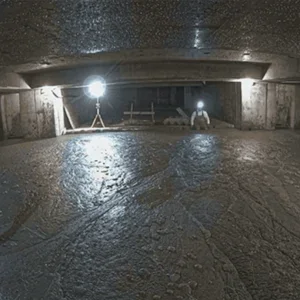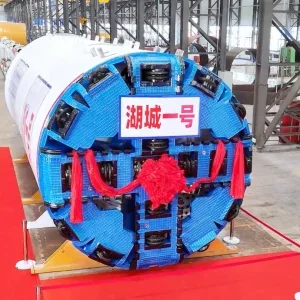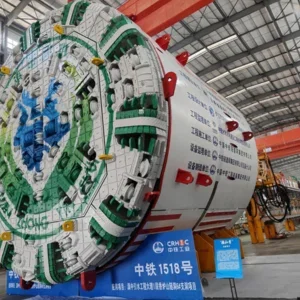Factory Acceptance Tests (FAT) represent the final stage of manufacturing. They are designed to confirm – prior to delivery and commissioning – that a tunnel boring machine (TBM) will perform as designed and to allow any final adjustments to be made in the factory. Spanning several weeks, the tests for the 14m-diameter variable density machine were conducted by Herrenknecht engineers, with virtual participation by US-based engineers working for project contractor Hampton Roads Connector Partners (HRCP).
The Hampton Roads Bridge and Tunnel (HRBT) project is multi-faceted and includes the construction of twin two-lane bored tunnels, new marine trestle bridges and roadway widening along 16km of the I-64 highway. Running beneath the estuary of the Elizabeth and James rivers, the 2.4km-long tunnels will be positioned around 15m below the existing road tunnels. New tunnel portals will be constructed on man-made islands (North and South islands) which will be accessed by trestle bridges at either side of the estuary.
Weighing in at 4,000t, the mammoth machine is now being disassembled in preparation for shipment to the South Island where it is expected to arrive in late autumn 2021 and begin boring in mid-2022. The TBM is named after Mary Jackson, NASA’s first African American engineer and a local resident.
Owned by the Virginia Department of Transportation (VDOT), the US$3.8bn HRBT Expansion Project is the largest highway construction project in Virginia’s history and currently one of the biggest infrastructure projects in the US. As design-build contractor, HRCP is a joint venture comprising Dragados USA, Vinci Construction Grands Projets, Flatiron Construction and Dodin Campenon Bernard.
More details on this project can be found in the June 2021 issue of Tunnels and Tunnelling International.







